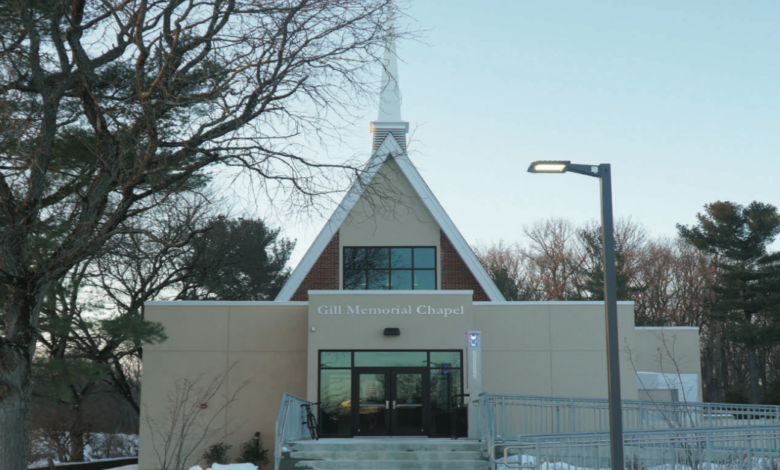
Westminster students feel ignored by university response to petition
By Sarah Siock
Despite the administration providing a lengthy response to a Westminster Choir College (WCC) petition signed by students, alumni and faculty that outlined several disappointments with WCC’s integration onto the Lawrenceville campus on Dec. 16, students are not satisfied and are calling for more action from Rider’s leadership.
The petition, which called on Rider to either provide students with suitable performance facilities, or re-open WCC’s former Princeton campus, received over 130 signatures. Rider President Gregory Dell’Omo, Provost DonnaJean Fredeen, Westminster College of the Arts Dean Marshall Onofrio and the Board of Trustees were emailed the petition on Nov. 29 and asked to respond by Dec. 15.
Marion Jacob, a second-year master’s student studying choral composition and Debbie-Ann Francis, a first-year graduate student studying piano pedagogy created the petition after connecting over their disappointments of the Lawrenceville campus. Among their concerns, Jacob and Francis were unhappy with the small practice space and substandard acoustics in Gill Chapel, the primary rehearsal and performance area for WCC.
“We have all of these things that are inadequate about the facilities, we have numerous cases of students reaching out to administration asking for assistance or asking for answers and getting no response again and again, so we wrote the petition,” said Jacob.
The petition also included complaints of decreasing enrollment and a lack of WCC promotion on campus.
A four-page response signed by Dell’Omo, Fredeen and Onofrio was emailed and solely addressed to Jacob. The response addressed the concerns in the petition including the issues regarding Gill Chapel.
“Starting at a high level, please know we have invested considerable time and millions of dollars in Westminster Choir College campus transition and the facilities to support it, all in a very challenging fiscal and COVID-impacted environment. We know transitions are hard and often require sustained work to get right. We are continuing our work as explained below,” the response reads.
The administration also said Gill Chapel “can accommodate 230 singers. … However, COVID protocols required a change to all seating arrangements. When we are able to safely return to unrestricted seating, Gill Chapel will easily accommodate the Symphonic Choir, which enrolls approximately 80 students at this time.”
However, Jacob and Francis have both experienced numerous occasions where they could not secure a practice room. Francis said the limited space presents many obstacles for her as a piano student with a strict practice schedule. She said she was once given the option to utilize practice rooms inside of a dorm building, but felt it was not a realistic choice.
“I am a grad student, I am not an undergrad student. But I’m supposed to run to a dorm that’s not my own to practice there. That doesn’t make any sense. This building [Gill Chapel] is supposed to be the place where I practice,” said Francis.
Jacob and Marion felt the administration’s response did not present solutions or recognize the concerns as true problems. The graduate students have not had any further communication with the administration since receiving the response.
“It’s just several pages of gaslighting. They didn’t address our concerns, other than to say we’re doing better than you had before,” said Jacob.
Francis wished for a more urgent response.
She said, “Many times they said ‘we’ll wait for next semester.’ I’m saying we don’t mean next semester these buildings are already two years behind schedule.” The petition also detailed dissatisfaction in the presence of WCC at
Westminster. The 1991 Merger Agreement between Rider and WCC states that Rider has an obligation to, “preserve, promote and enhance the existing missions of WCC’s purposes, programs and traditions and ensure its separate identity.” However, the petition states there is no WCC merchandise in the bookstore and few WCC specific signage in buildings on campus.
The administration’s response said the university intended to install items from the Princeton campus at various locations around the Lawrenceville campus.
“The pandemic slowed some of that progress, but now that we have moved through the first semester of more normal on-campus operations, these plans will be revisited,” the response reads.
Joel Phillips, professor of music composition and theory spoke to the importance of WCC’s identity.
“These students feel it most above all. These are people that work seven days a week together to make beautiful music. It’s very unusual for young people to meet together like that, to do something that’s bigger than any one of them is by themselves. We have a fantastic thing in that regard,” Phillips said. “ So when they feel like the administration is literally doing everything in its power to devalue what they do and to erase their identity it’s easy to understand why these people are both angry and depressed.”


